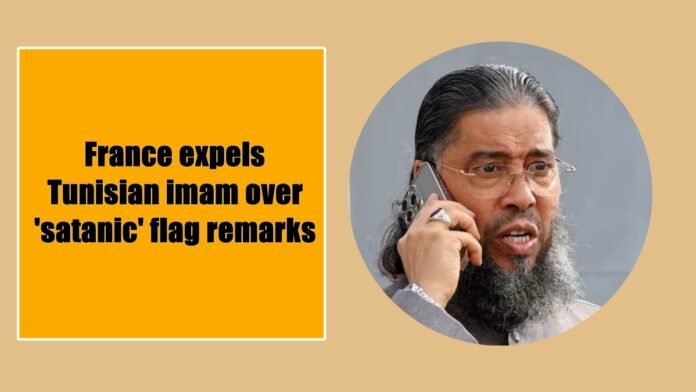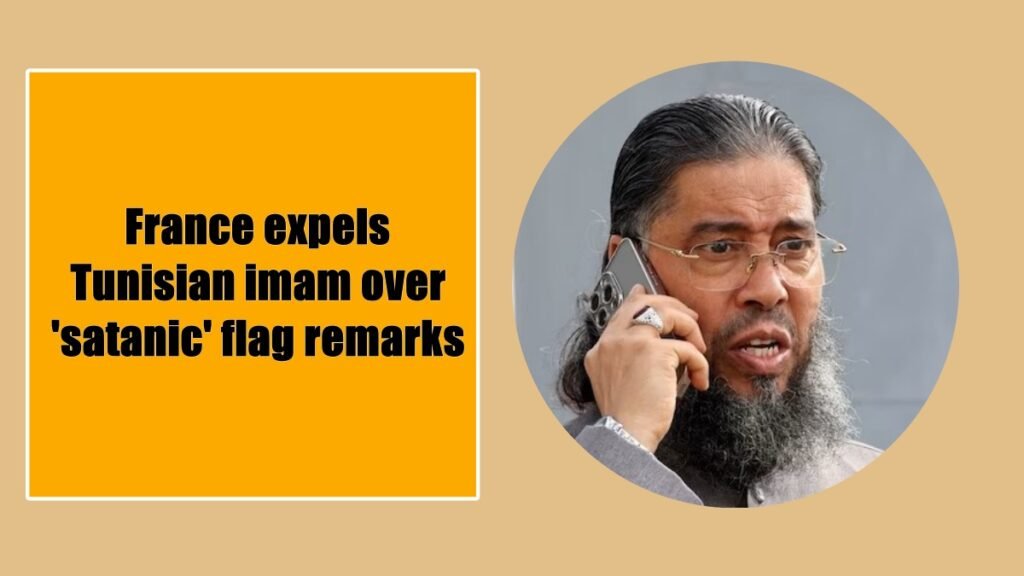
- France has deported a Tunisian imam, Mahjoub Mahjoubi, who called the French flag ‘satanic’ in a sermon.
- The French interior minister said Mahjoubi was a radical preacher who promoted a ‘regressive, intolerant and violent’ ideology.
- Mahjoubi denied any disrespect to the French flag and said he would challenge his expulsion in court.
- The incident has sparked a debate on secularism and freedom of expression in France, which has witnessed several controversies involving Islam and immigration.
Paris: France has expelled a Tunisian Muslim cleric, Imam Mahjoub Mahjoubi, from the country for making ‘unacceptable’ comments on the French flag. French Interior Minister Gerald Darmanin announced this on Thursday, March 22, 2024.
“The radical imam Mahjoub Mahjoubi has been expelled from France, less than 12 hours after his arrest,” Darmanin tweeted. “We will not give people freedom to do or say anything.”
What did Mahjoubi say?
According to the information, France took this action after a post made by Mahjoubi on social media, in which he had described the national flag of France as ‘satanic’. He also shared a video of a sermon he delivered at the Etouba Mosque in Bagnols-sur-Seize, where he was the imam.
In the video, which went viral on social media, Mahjoubi is seen calling the French flag a ‘satanic flag’. He says, “There is no place for such flags in the path of Allah. Now we won’t have all these tricolor flags that bother us, that give us headaches.” The national flag of France has three colors: blue, white, and red.
How did Mahjoubi react?
Mahjoubi defended his statements and said that his post was misinterpreted. “I never intended to disrespect the national flag of France,” he told France Info. He said he was referring to the use of the flag by some far-right groups who oppose Islam and immigration.
He also said he would challenge his removal in court. His lawyer, Abdelaziz Chaambi, described the French government’s decision as unfortunate and announced to challenge the expulsion process in court. He said Mahjoubi was a respected and moderate imam who had no links to extremism.

What did the French authorities say?
French media revealed parts of Mahjoubi’s expulsion order, which accuses him of promoting a ‘regressive, intolerant and violent’ ideology. The order says Mahjoubi has expressed hostility to the values of the French Republic, such as secularism, democracy, and human rights.
The order also says Mahjoubi has incited hatred and discrimination against non-Muslims, especially Jews and Christians. It says he has justified violence in the name of Islam, such as the killing of French teacher Samuel Paty, who was beheaded by an Islamist extremist in October 2020 for showing cartoons of Prophet Mohammed in a class.
Reuters quoted radio network France Info as saying that the Muslim cleric was put on a flight on Thursday evening and sent to his country Tunisia.
What are the implications of the incident?
The incident could further deepen the ongoing debate in France between secularism and freedom of expression. France has a strict separation of religion and state and has banned religious symbols such as the hijab in public institutions. It has also defended the right to publish cartoons of Prophet Mohammed, which many Muslims consider blasphemous.
There have been many controversial incidents in France before, involving Islam and immigration. France has faced several terrorist attacks by Islamist militants, such as the Charlie Hebdo shooting in 2015 and the Nice church stabbing in 2020. It has also witnessed protests and riots by ethnic minorities, such as the 2005 suburban unrest and the 2020 anti-police demonstrations.
It remains to be seen what kind of reaction Mahjoubi’s removal will provoke in French society. The incident also highlights growing polarization in the country and negative sentiments towards immigration. France has a large Muslim population, estimated at 6 million, mostly of North African origin. Many of them face discrimination and marginalization in education, employment, and housing.




















































